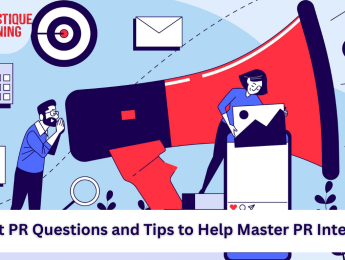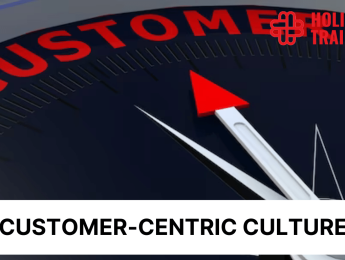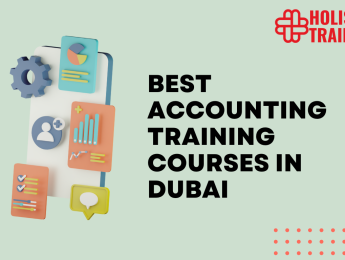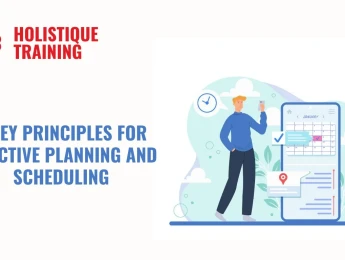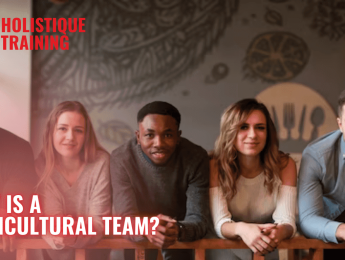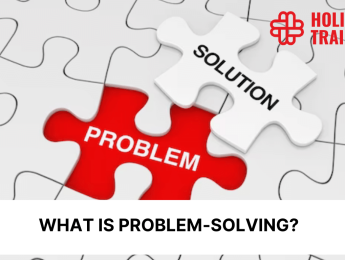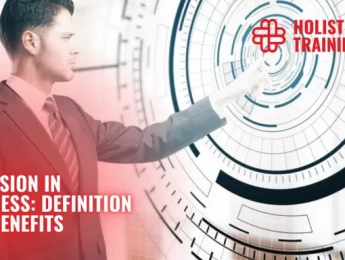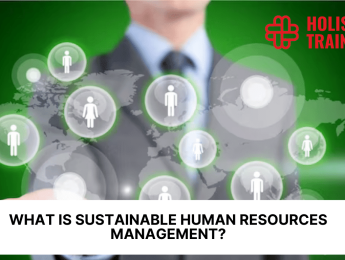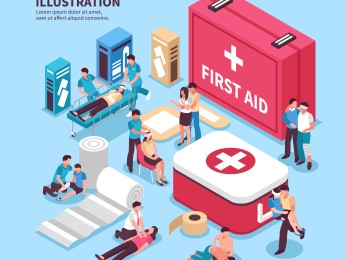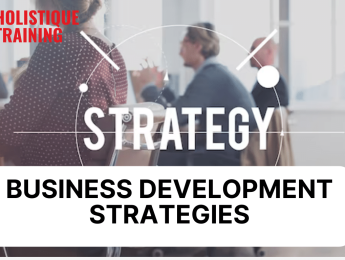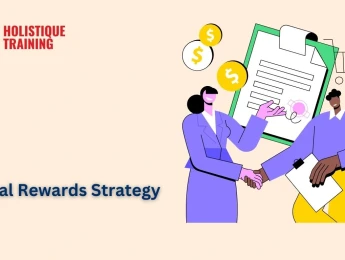- Table of Contents
- Introduction
- Key Skills Every PR Professional Needs
- 1. Strong Written and Verbal Communication
- 2. Crisis Management
- 3. Media Relations
- 4. Strategic Thinking
- 5. Digital Savviness
- 6. Time Management and Multi-tasking
- Academic Background Required for a PR Career
- How to Succeed in a PR Job Interview
- 14 Best Public Relations Questions and Tips
- 1. “Can you describe a successful PR campaign you managed or admired?”
- 2. “How would you handle a sudden public backlash on social media?”
- 3. “What’s your experience with writing press releases?”
- 4. “How do you build relationships with journalists?”
- 5. “What do you do when a campaign doesn’t go as planned?”
- 6. “What channels do you use to measure the success of a PR campaign?”
- 7. “How do you stay updated with PR trends and industry news?”
- 8. “Tell us about a time you worked under pressure.”
- 9. “Why do you want to work in PR?”
- 10. “How do you ensure brand consistency across platforms?”
- 11. “Describe your experience working with influencers or partners.”
- 12. “What’s your approach to writing for different audiences?”
- 13. “Have you ever dealt with negative media coverage?”
- 14. “Where do you see the future of PR heading?”
- Conclusion
Introduction
Public relations (PR) is an ever-evolving, fast-paced field that demands strategic communication, emotional intelligence, and a deep understanding of brand reputation. Whether you're applying for a corporate PR position, joining an agency, or diving into political or healthcare communications, the interview process is your gateway into the profession.
With companies increasingly seeking PR professionals who can manage crises, craft compelling narratives, and adapt to digital landscapes, standing out in interviews has never been more critical. This guide will not only walk you through the most common and challenging PR interview questions, but also help you prepare with expert-backed tips and must-have skills to confidently showcase your qualifications.
Key Skills Every PR Professional Needs
Success in PR requires a combination of creativity, strategic thinking, and people skills. Below are six essential skills every PR professional should master—each one explained in detail.
1. Strong Written and Verbal Communication
Communication is the heart of PR. You’ll be expected to write press releases, speeches, social media content, and responses to crises—all while keeping the brand voice intact. Verbal communication matters equally for pitching stories to journalists and representing your brand in meetings and interviews. According to a report by the National Association of Colleges and Employers (NACE), 82% of employers prioritize communication skills when hiring.
2. Crisis Management
PR professionals must know how to manage reputational threats quickly and effectively. Whether it’s a social media backlash or a corporate scandal, your ability to assess, plan, and deliver clear messaging can determine a brand’s survival. A 2022 study from Harvard Business Review revealed that companies with a crisis communication plan recover 60% faster from reputational damage than those without one.
3. Media Relations
Building genuine, lasting relationships with journalists, bloggers, and influencers ensures that your press releases and stories get noticed. Knowing how to pitch angles that resonate with the media is a skill that develops over time but is vital from day one.
4. Strategic Thinking
Great PR goes beyond press coverage—it supports business goals. Professionals must align communication plans with brand strategy, understand audience segmentation, and use analytics to measure impact. A Forbes article from 2023 emphasizes that PR teams that align their KPIs with business objectives are 40% more effective in achieving long-term goals.
5. Digital Savviness
In today’s digital world, PR professionals need to know how to manage social media crises, monitor online sentiment, and understand SEO, content strategy, and influencer marketing.
6. Time Management and Multi-tasking
PR can get hectic. You may be writing a press release, managing an event, and pitching to the media—all in one day. Being able to prioritize tasks and manage your time efficiently is critical to avoiding burnout and ensuring deadlines are met.
Academic Background Required for a PR Career
While it’s possible to enter PR from various academic backgrounds, degrees in the following fields are most commonly sought:
- Public Relations: Direct, hands-on training in media relations, strategy, and campaign design.
- Communications: Provides foundational knowledge in audience engagement and messaging.
- Journalism: Teaches storytelling, interviewing, and ethical communication.
- Marketing: Equips students with market analysis and branding strategies.
- English or Media Studies: Develops writing and analytical skills valuable in PR settings.
Holistique Training also offers practical certification courses to supplement traditional degrees and give candidates an edge in today’s competitive market.
How to Succeed in a PR Job Interview
Whether you're fresh out of university or transitioning into PR from another field, acing the job interview is essential. Preparation is key—understanding the company, tailoring your resume, and anticipating industry-specific questions will position you as a standout candidate.
Here's how to prepare:
- Research the company's current PR campaigns and brand tone.
- Review recent press releases or news about the company.
- Have a digital portfolio ready with writing samples or mock campaigns.
- Prepare to talk about your problem-solving approach and how you manage deadlines or crises.
- Practice speaking confidently about your past achievements and strategies.
Now, let’s dive into the 14 Best PR Interview Questions—along with detailed tips to help you answer each one like a pro.
14 Best Public Relations Questions and Tips
1. “Can you describe a successful PR campaign you managed or admired?”
Tip: Choose a campaign that had a clear objective, creative execution, and measurable results. If it’s a campaign you worked on, explain your role in planning, implementing, or analyzing it. Talk about how you contributed to its success—whether by generating media attention, increasing audience engagement, or handling influencer partnerships. If it's someone else’s campaign, mention why it stood out, what strategy it used (emotional appeal, storytelling, etc.), and what you learned from it. Use data if possible (e.g., “The campaign increased brand mentions by 60% in two weeks”).
2. “How would you handle a sudden public backlash on social media?”
Tip: Show that you understand the urgency and sensitivity of online crises. Begin by explaining your step-by-step response: assess the situation, coordinate with internal stakeholders, craft an empathetic and transparent message, and respond quickly through the right channels. Emphasize the importance of tone, timing, and truth. For example: “First, I’d gather facts from the internal team, then issue a clear, non-defensive statement across social media within hours. I'd continue monitoring sentiment using tools like Sprout Social and adjust messaging as needed.” Show you're calm under pressure and solution-oriented.
3. “What’s your experience with writing press releases?”
Tip: Explain your understanding of structure (headline, lead, body, quote, boilerplate), and how you write clearly, concisely, and persuasively. Mention your ability to adapt press releases for different media outlets and audiences. If you’ve gotten media coverage from your press releases, mention where and why it succeeded. For example: “I recently wrote a release for a new product launch that was picked up by three tech blogs because I tailored the content to appeal to their readers’ interests.”
4. “How do you build relationships with journalists?”
Tip: Highlight how you research journalists before pitching, personalize your outreach, and respect their deadlines and beats. Talk about maintaining ongoing contact, not just reaching out when you need coverage. A good answer might be: “I always read the journalist’s latest work to understand their style, and when I pitch, I keep it short, relevant, and timely. After coverage, I follow up with a thank-you and stay in touch for future opportunities.” Demonstrate professionalism and genuine relationship-building.
5. “What do you do when a campaign doesn’t go as planned?”
Tip: Show that you take accountability and learn from setbacks. Outline how you evaluate what didn’t work, consult data (open rates, reach, engagement), and adapt your approach. Share an example: “One event campaign didn’t get the expected turnout. I analyzed the timing and channel choices and realized we didn’t use enough local influencers. For the next event, we adjusted our outreach and saw a 40% improvement in attendance.”
6. “What channels do you use to measure the success of a PR campaign?”
Tip: Show that you understand both qualitative and quantitative measurements. Mention tools like Google Analytics (web traffic), Meltwater or Cision (media coverage), and Hootsuite (social engagement). Discuss KPIs like share of voice, audience sentiment, reach, or earned media value. For example: “After a campaign, I track media mentions, backlink quality, social shares, and overall audience sentiment to gauge effectiveness.”
7. “How do you stay updated with PR trends and industry news?”
Tip: Mention relevant blogs, publications, and tools. For example: “I follow PRWeek, Forbes Communications Council, and Spin Sucks. I also subscribe to newsletters like Muck Rack Daily and participate in PR Slack communities.” If you take courses or webinars (like those offered by Holistique Training), mention them to show continuous learning. Staying current shows you’re proactive and informed in a fast-changing industry.
8. “Tell us about a time you worked under pressure.”
Tip: Use the STAR method (Situation, Task, Action, Result). Choose an example where you had tight deadlines, high stakes, or simultaneous tasks. Show how you remained focused and got results. For instance: “During a product recall, I coordinated messaging between legal, marketing, and media teams within hours. We released a public statement the same day, and coverage was neutral rather than negative—protecting the brand’s image.”
9. “Why do you want to work in PR?”
Tip: Personalize your answer. Talk about your love for storytelling, communication, brand strategy, or social impact. Mention experiences that drew you into PR (e.g., organizing campaigns at university, writing, or managing a student brand). Align your passion with the employer’s values: “I’m drawn to PR because I love connecting ideas with people. Your agency’s work in nonprofit advocacy aligns with my personal goals.”
10. “How do you ensure brand consistency across platforms?”
Tip: Emphasize the importance of tone, visuals, and message alignment. Mention tools like brand guidelines, editorial calendars, and cross-team coordination. For example: “I ensure every post or press release follows our style guide. I also work closely with design and digital teams to maintain a unified voice, whether it’s on social media, the website, or in interviews.”
11. “Describe your experience working with influencers or partners.”
Tip: Highlight how you identify the right influencers, negotiate collaborations, and measure results. “I’ve worked with micro-influencers on a regional campaign. I analyzed their engagement rates before reaching out, then aligned content with our message. After the campaign, we tracked promo code usage and saw a 25% increase in sign-ups.”
12. “What’s your approach to writing for different audiences?”
Tip: Explain that you research demographics, preferences, and platform behaviors. For instance: “When writing for investors, I use a formal tone and focus on ROI. For social media, I use conversational language and visual elements. I always match the message to the audience’s interests and communication style.”
13. “Have you ever dealt with negative media coverage?”
Tip: Describe how you remain composed, gather facts, and respond constructively. “A client once received negative coverage after a product malfunction. I contacted the journalist to provide our side of the story, issued a public apology, and highlighted how we were fixing the issue. This led to a follow-up piece that showed our transparency and responsibility.”
14. “Where do you see the future of PR heading?”
Tip: Talk about how PR is evolving with digital trends, data, and storytelling. Mention AI in media monitoring, the growing role of influencers, and the shift toward integrated communications. “PR is becoming more data-driven and digital-first. Brands are also expected to stand for something, not just sell. I believe the future of PR lies in authentic storytelling backed by analytics.” According to Forbes, 74% of executives believe integrated communication—where PR, marketing, and analytics work together—will shape the future of the industry.
Conclusion
Mastering a PR interview takes more than just textbook knowledge—it’s about showcasing your ability to think strategically, communicate effectively, and stay calm under pressure. By understanding the essential skills, preparing answers to common questions, and staying updated with industry trends, you’ll walk into your next interview with confidence and clarity. Whether you're a new graduate or a career shifter, investing in your PR career is a strategic move. Take the time to build your portfolio, sharpen your interview techniques, and continuously learn.
Want more expert tips and exclusive PR content? Sign up for our newsletter today and stay ahead in your career journey!


